Code
HCS11151
Weight
1.8 Kg / 3.97 lbs
Size
Height
23cm (9") Width
16cm (6") Depth
12cm (5") Material
Copper Partly Gold Plated
Availability
Available
Date Added
2014-11-27 19:09:13
Note : We used to sell this product 11 years ago so it may no longer be in our stock.
It is possible that we still have it with our suppliers but the price could be different from before.
Feel free to order. We will verify availability and inform you promptly.
It is possible that we still have it with our suppliers but the price could be different from before.
Feel free to order. We will verify availability and inform you promptly.

Safe Payment
We accept Paypal, Money Transfer, Bank Transfer
Confidence
Protection covers your purchase and personal data.
Worldwide Delivery
We ship Worldwide, except Russia.Shipping cost US$25.2 for upto 0.5 kgs

Hotline
Talk to help line for your question on 9841267335This is the most common form of Buddhist statue. In some sences you might call it a whole sale Handmade statue. as there are hundreds of them available in the market at any given time.
These type of statue are used for wordship rather than decoration or collection.
Partly Gold plating a statue is attemp to make a Idols as
humanly as possible.
where gold is representing the idols Skin color, face is painted to make eyes and mouth distinct, and coths are is brown color representing the the dress of Buddhist Monastary.
These type of statue are used for wordship rather than decoration or collection.
Partly Gold plating a statue is attemp to make a Idols as
humanly as possible.
where gold is representing the idols Skin color, face is painted to make eyes and mouth distinct, and coths are is brown color representing the the dress of Buddhist Monastary.
Best Price : Best Price
This [best Price], Manjushri, For A Gift, Altars And Buddhist Ritual is essential for any Buddhist home. Designed to meet all the requirements for Buddhist rituals, this [best Price], Manjushri, For A Gift, Altars And Buddhist Ritual offers exceptional value at the best price on the market today. Additionally, it will be heavily discounted to make your purchase even more affordable. we strive to provide you with the best possible value at this price point.
This [best Price], Manjushri, For A Gift, Altars And Buddhist Ritual is essential for any Buddhist home. Designed to meet all the requirements for Buddhist rituals, this [best Price], Manjushri, For A Gift, Altars And Buddhist Ritual offers exceptional value at the best price on the market today. Additionally, it will be heavily discounted to make your purchase even more affordable. we strive to provide you with the best possible value at this price point.
Gold Painted Face
The face of [best Price], Manjushri, For A Gift, Altars And Buddhist Ritual is painted with gold to enhance its significant features, particularly the eyes, and lips. This detailed painting is essential as it brings forth the crucial attributes of the expression of eyes and lips that metal carving alone cannot capture.
Moreover, the painted face serves as a symbolic and sacred ritual in Buddhism, preparing the statue for consecration and practice. The act of painting the face with gold in Buddhism holds deep meaning. It represents the intention to bring life and expression to the statue, imbuing it with a sense of vitality and presence. The application of gold on the face showcases the devotion and craftsmanship of the artisans, ensuring that every detail is carefully attended to honor the sacred essence of the [best Price], Manjushri, For A Gift, Altars And Buddhist Ritual. Read More . . .
The face of [best Price], Manjushri, For A Gift, Altars And Buddhist Ritual is painted with gold to enhance its significant features, particularly the eyes, and lips. This detailed painting is essential as it brings forth the crucial attributes of the expression of eyes and lips that metal carving alone cannot capture.
Moreover, the painted face serves as a symbolic and sacred ritual in Buddhism, preparing the statue for consecration and practice. The act of painting the face with gold in Buddhism holds deep meaning. It represents the intention to bring life and expression to the statue, imbuing it with a sense of vitality and presence. The application of gold on the face showcases the devotion and craftsmanship of the artisans, ensuring that every detail is carefully attended to honor the sacred essence of the [best Price], Manjushri, For A Gift, Altars And Buddhist Ritual. Read More . . .
Partly Gold plating.
This [best Price], Manjushri, For A Gift, Altars And Buddhist Ritual has a Partly gold-plated finish. Partly fire gold gilding, a common practice in Nepali handicrafts. This technique is skillfully employed by artisans to create intricate designs on various metal objects, including statues, jewelry, and decorative items. Through a process, a mask or resist is applied to safeguard specific areas from the gold plating. The object is then subjected to high temperatures, allowing the gold to beautifully adhere to exposed surfaces using a combination of heat and pressure.
In the realm of Buddhist statues, this technique holds additional significance as it distinguishes the golden-plated body from the oxidized or maroon-painted clothing. This visual separation conveys the contrast between the divine purity of the body and the modest attire symbolizing the humble lifestyle of Buddhist monks. The partly fire gold gilding not only adds exquisite detail and elegance but also embodies the deep cultural and spiritual meaning associated with these treasured artifacts. Read More . . .
This [best Price], Manjushri, For A Gift, Altars And Buddhist Ritual has a Partly gold-plated finish. Partly fire gold gilding, a common practice in Nepali handicrafts. This technique is skillfully employed by artisans to create intricate designs on various metal objects, including statues, jewelry, and decorative items. Through a process, a mask or resist is applied to safeguard specific areas from the gold plating. The object is then subjected to high temperatures, allowing the gold to beautifully adhere to exposed surfaces using a combination of heat and pressure.
In the realm of Buddhist statues, this technique holds additional significance as it distinguishes the golden-plated body from the oxidized or maroon-painted clothing. This visual separation conveys the contrast between the divine purity of the body and the modest attire symbolizing the humble lifestyle of Buddhist monks. The partly fire gold gilding not only adds exquisite detail and elegance but also embodies the deep cultural and spiritual meaning associated with these treasured artifacts. Read More . . .
Lost-Wax System
This Manjushri of [best Price], Manjushri, For A Gift, Altars And Buddhist Ritual is made by the process of the Lost Wax system. This is a very complicated, time consuming and historic process of making metal sculptures.Which is why it is sometimes called Precision Casting as well. Hence the sculptures made by this process are comparatively expensive. There are many new, advanced and less time consuming methods of casting metal sculptures available as well. But due to the benefits provided by the traditional lost wax system in quality control and customization, we prefer the Loss wax system over Ceramic molding, or sand casting to make our Manjushri.
Below we have tried to illustrate the process of making a loss wax system statue: Read More . . .
This Manjushri of [best Price], Manjushri, For A Gift, Altars And Buddhist Ritual is made by the process of the Lost Wax system. This is a very complicated, time consuming and historic process of making metal sculptures.Which is why it is sometimes called Precision Casting as well. Hence the sculptures made by this process are comparatively expensive. There are many new, advanced and less time consuming methods of casting metal sculptures available as well. But due to the benefits provided by the traditional lost wax system in quality control and customization, we prefer the Loss wax system over Ceramic molding, or sand casting to make our Manjushri.
Below we have tried to illustrate the process of making a loss wax system statue: Read More . . .
Brief Introduction :
Manjushree is a Sanskrit word meaning 'gentle glory'. In Sanskrit, "shree" means 'glorious' or 'honorable'. His name signifies one who embodies enlightened wisdom. He confers mastery of the Dharma, wisdom, and eloquence and teaches the path of a bodhisattva in the Mahayana tradition.
Commentary :Manjushree is the Bodhisattva who holds the flaming sword [Skt. Khadga] of enlightenment, by his left hand in a warning( Tarjani) hand gesture ( Mudra) in his left hand representing his realization of wisdom to cut through ignorance & wrong view. His right hand depicted in teaching (Jnana Mudra) holds the stem of a Blue Lotus (Utpala) flower upon which rests the Book (Pustaka) of Perfection of Transcendental Wisdom. The blue lotus is a symbol of the victory of the spirit over the senses and signifies the wisdom of knowledge. This represents the lotus that he obtained from the middle of the lake in the Kathmandu Valley out of which grew a lotus bearing a Blue Flame which represents wisdom. Manjushree sits upon a moon disc upon a lotus with an elongated stem arising from a lake. He wears a gold diadem fitted with precious jewels. He wears a silk scarf fastened at the waist and over this, a softly glowing green scarf decorated with golden motifs. His head is silhouetted against a nimbus. The lotus he is sitting on has an elongated stem and arises from a lake representing his recovery of the blue flame of transcendent wisdom and the teaching he originated. The white sash is the attire of the Vajrayana school of Buddhism.
According to legend, Manjushree founded the Nepalese civilization. In ancient times, way before Buddha Shakyamuni the Kathmandu Valley was a vast lake. The Buddha Vipashyin came to Nepal to meditate on the hill above the lake. Wishing to give the rough mountain people an object of worship, Vipashyin threw a lotus seed into the lake. When this lotus bloomed, a blue flame of wisdom light shone from the center of its thousand petals. This light was called the Swayambhunath Dharmadhatu, the Self-Sprung Infinite Field of Light, and the flame of the enlightened mind of the primal Buddha, Vajradhara burned at its center. The light of Vajradhara also emanated in the colors of the rainbow and in each of the five colors appeared one of the Five Buddhas - Vairochana, Akshobhya, Ratnasambhava, Amitabha, and Amoghasiddhi. Then Manjushri went to Nagarkot Peak on the edge of the lake, and after having pondered in Samadhi how best the lake may be drained, with his keen-edged sword of wisdom he cut three Gorges. After the lake had been drained and the Valley bottom made suitable for cultivation Manjushree founded the city of Patan which was originally called Manjupattan. He taught the people many things. Manjushree manifests himself in the form of Yamantaka, known also as Vajrabhairava in order to overcome the lord of Death, Yama.
The Book (Pustaka) represents Transcendent Wisdom which came to be embodied by the Dyani {Pancha} Buddha Families. The book symbolically contains Buddhist teaching that had been lost to mankind & which was revealed to Manjushree. The book is commonly mistaken for the Prajna Paramita which was written by many hands between 100 & 200 CE realizing the Boddhisattva Principle. The book of Manjushree alludes to Wisdom and the emanation of the Five Transcendent Buddha Families. These are Vairochana, Akshobhya, Ratnasambhava, Amitabha & Amoghasiddhi. Wisdom Energy is a power that can extinguish the Five Negative afflictions. Each family heads wisdom and energy to overcome these Five hindrances to enlightenment which are greed, hatred, delusion, jealousy & pride.
According to legend, Manjushree founded the Nepalese civilization. In ancient times, way before Buddha Shakyamuni the Kathmandu Valley was a vast lake. The Buddha Vipashyin came to Nepal to meditate on the hill above the lake. Wishing to give the rough mountain people an object of worship, Vipashyin threw a lotus seed into the lake. When this lotus bloomed, a blue flame of wisdom light shone from the center of its thousand petals. This light was called the Swayambhunath Dharmadhatu, the Self-Sprung Infinite Field of Light, and the flame of the enlightened mind of the primal Buddha, Vajradhara burned at its center. The light of Vajradhara also emanated in the colors of the rainbow and in each of the five colors appeared one of the Five Buddhas - Vairochana, Akshobhya, Ratnasambhava, Amitabha, and Amoghasiddhi. Then Manjushri went to Nagarkot Peak on the edge of the lake, and after having pondered in Samadhi how best the lake may be drained, with his keen-edged sword of wisdom he cut three Gorges. After the lake had been drained and the Valley bottom made suitable for cultivation Manjushree founded the city of Patan which was originally called Manjupattan. He taught the people many things. Manjushree manifests himself in the form of Yamantaka, known also as Vajrabhairava in order to overcome the lord of Death, Yama.
The Book (Pustaka) represents Transcendent Wisdom which came to be embodied by the Dyani {Pancha} Buddha Families. The book symbolically contains Buddhist teaching that had been lost to mankind & which was revealed to Manjushree. The book is commonly mistaken for the Prajna Paramita which was written by many hands between 100 & 200 CE realizing the Boddhisattva Principle. The book of Manjushree alludes to Wisdom and the emanation of the Five Transcendent Buddha Families. These are Vairochana, Akshobhya, Ratnasambhava, Amitabha & Amoghasiddhi. Wisdom Energy is a power that can extinguish the Five Negative afflictions. Each family heads wisdom and energy to overcome these Five hindrances to enlightenment which are greed, hatred, delusion, jealousy & pride.
Mantra of Manjushree
Om A Ra Pa Ca Na Dhih


![[best Price], Manjushri, For A Gift, Altars And Buddhist Ritual](https://handicraftseller.com/uploads/pics/product/thumb/2014/11/11151.jpg)
![[best Price], Manjushri, For A Gift, Altars And Buddhist Ritual](https://handicraftseller.com/uploads/pics/product/thumb/2014/11/11151_0.jpg)
![[best Price], Manjushri, For A Gift, Altars And Buddhist Ritual](https://handicraftseller.com/uploads/pics/product/thumb/2014/11/11151_1.jpg)
![[best Price], Manjushri, For A Gift, Altars And Buddhist Ritual](https://handicraftseller.com/uploads/pics/product/thumb/2014/11/11151_2.jpg)
![[best Price], Manjushri, For A Gift, Altars And Buddhist Ritual](https://handicraftseller.com/uploads/pics/product/thumb/2014/11/11151_3.jpg)
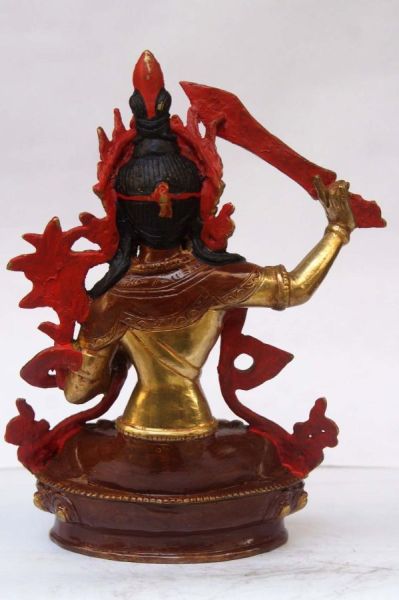

























































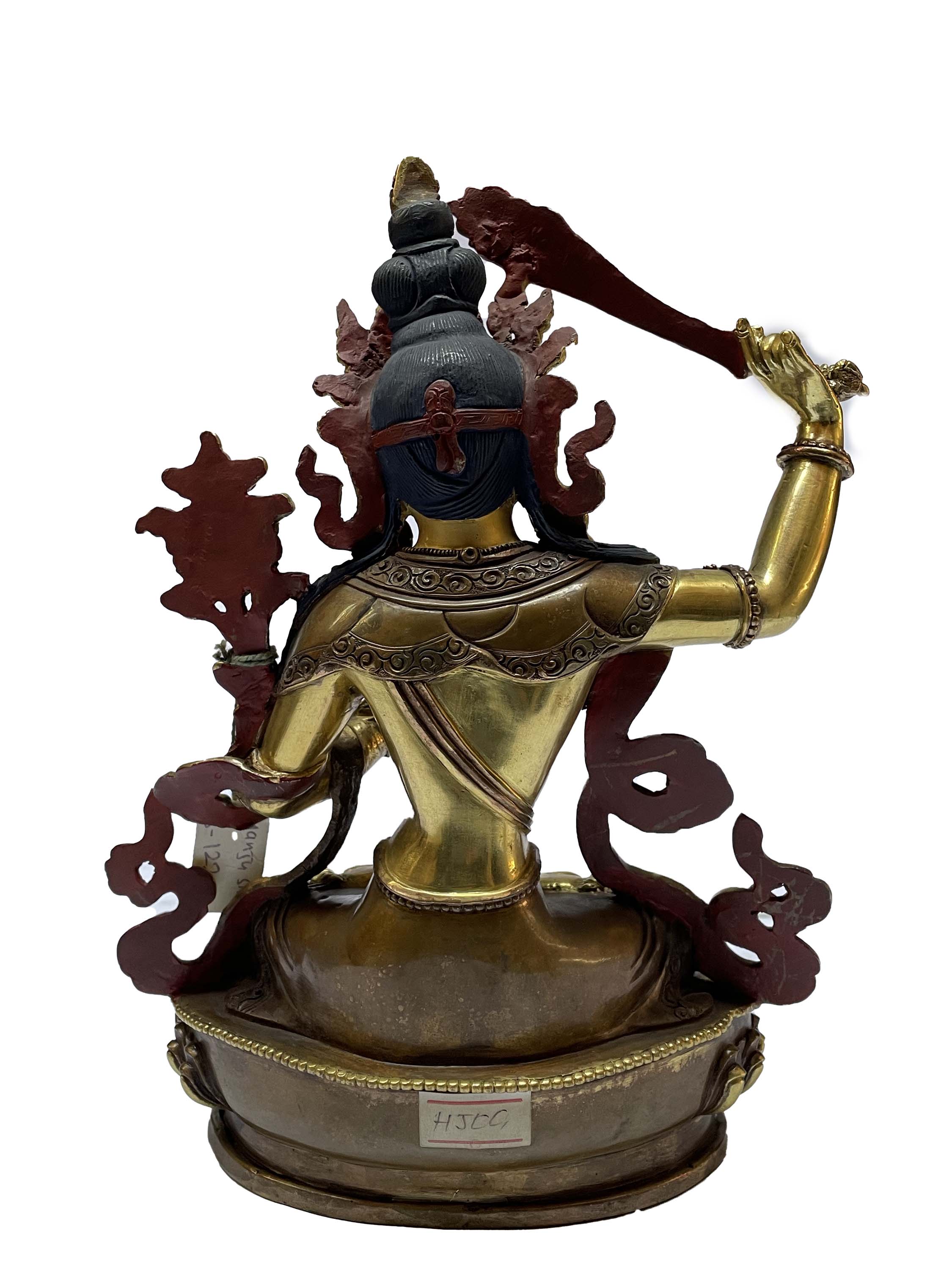 of Manjushri,
of Manjushri, 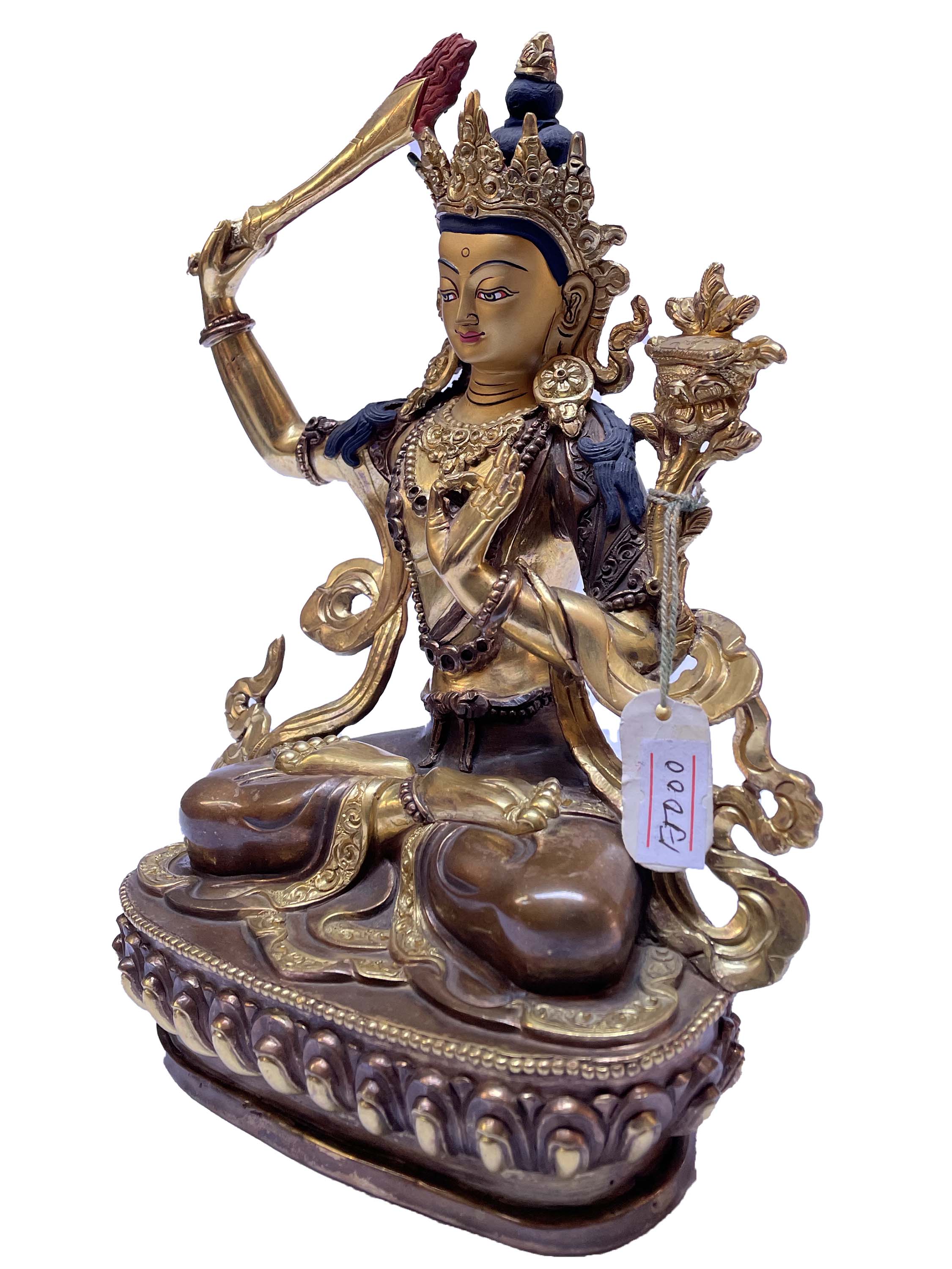 of Manjushri,
of Manjushri,  Manjushri, Buddhist Handmade Statue,
Manjushri, Buddhist Handmade Statue, 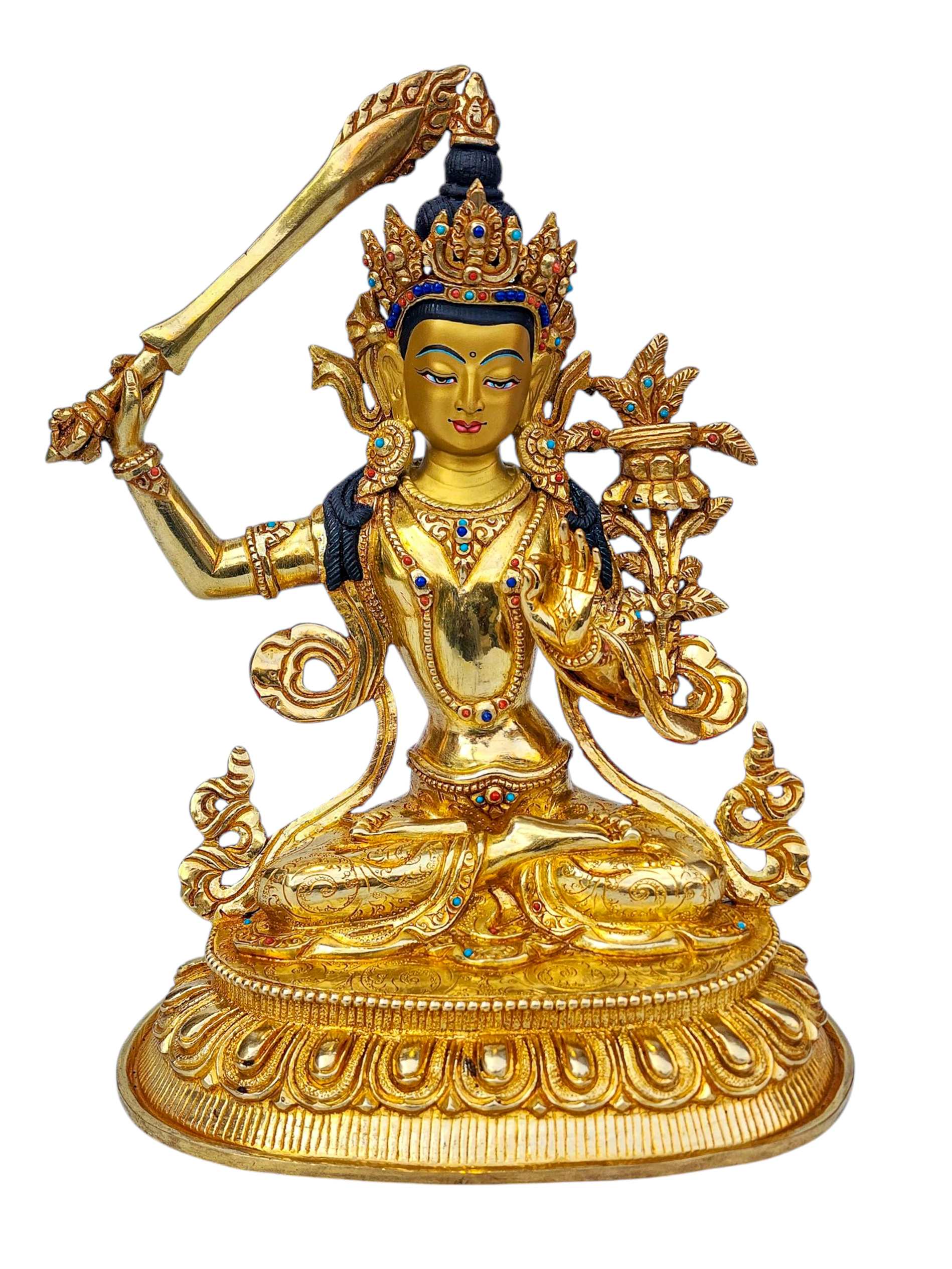 Manjushri, Buddhist Handmade Statue,
Manjushri, Buddhist Handmade Statue, 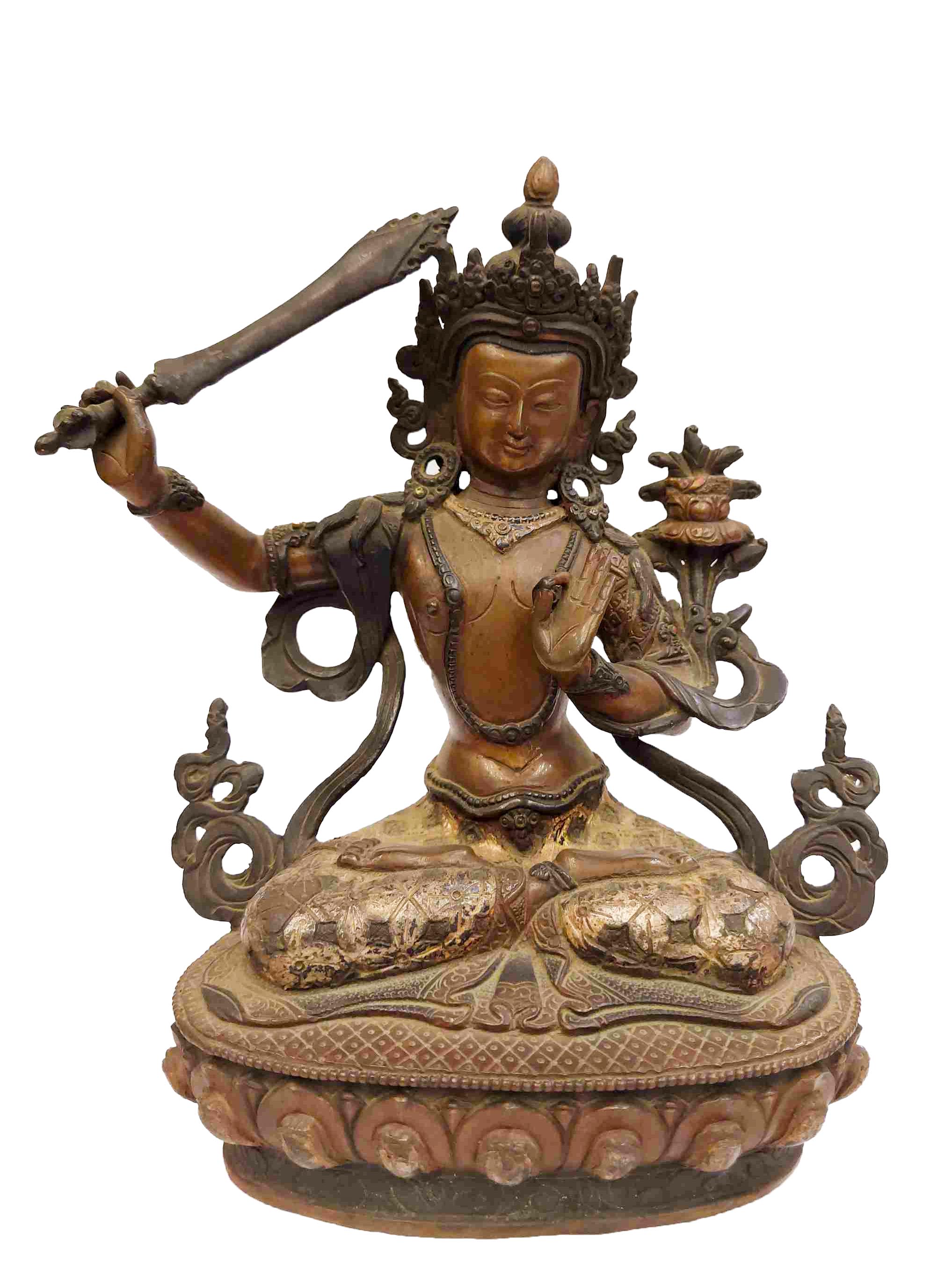 of Manjushri,
of Manjushri, 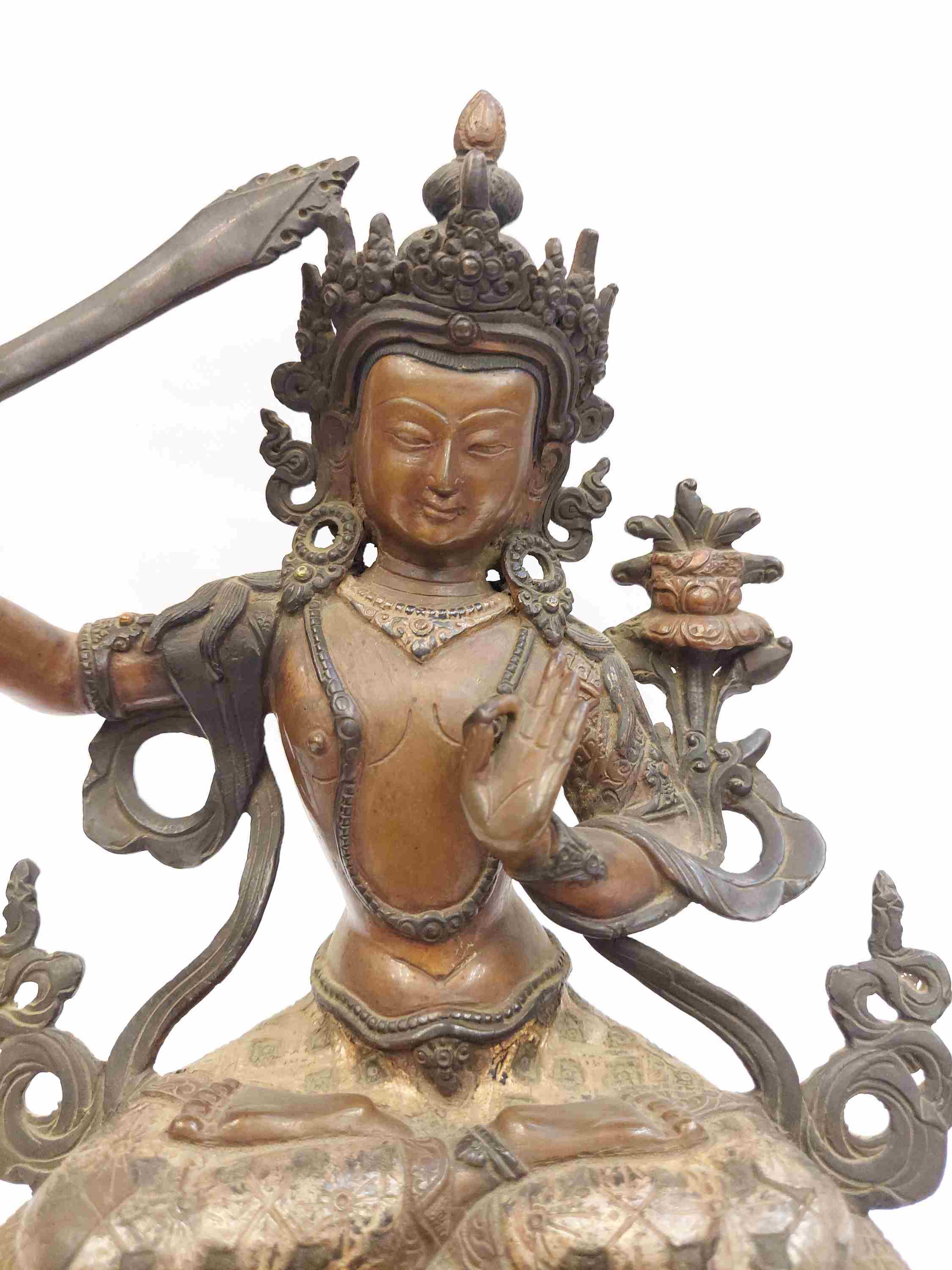 of Manjushri,
of Manjushri,  of Namasangiti Chocolate Oxidation" title="Statue
of Namasangiti Chocolate Oxidation" title="Statue 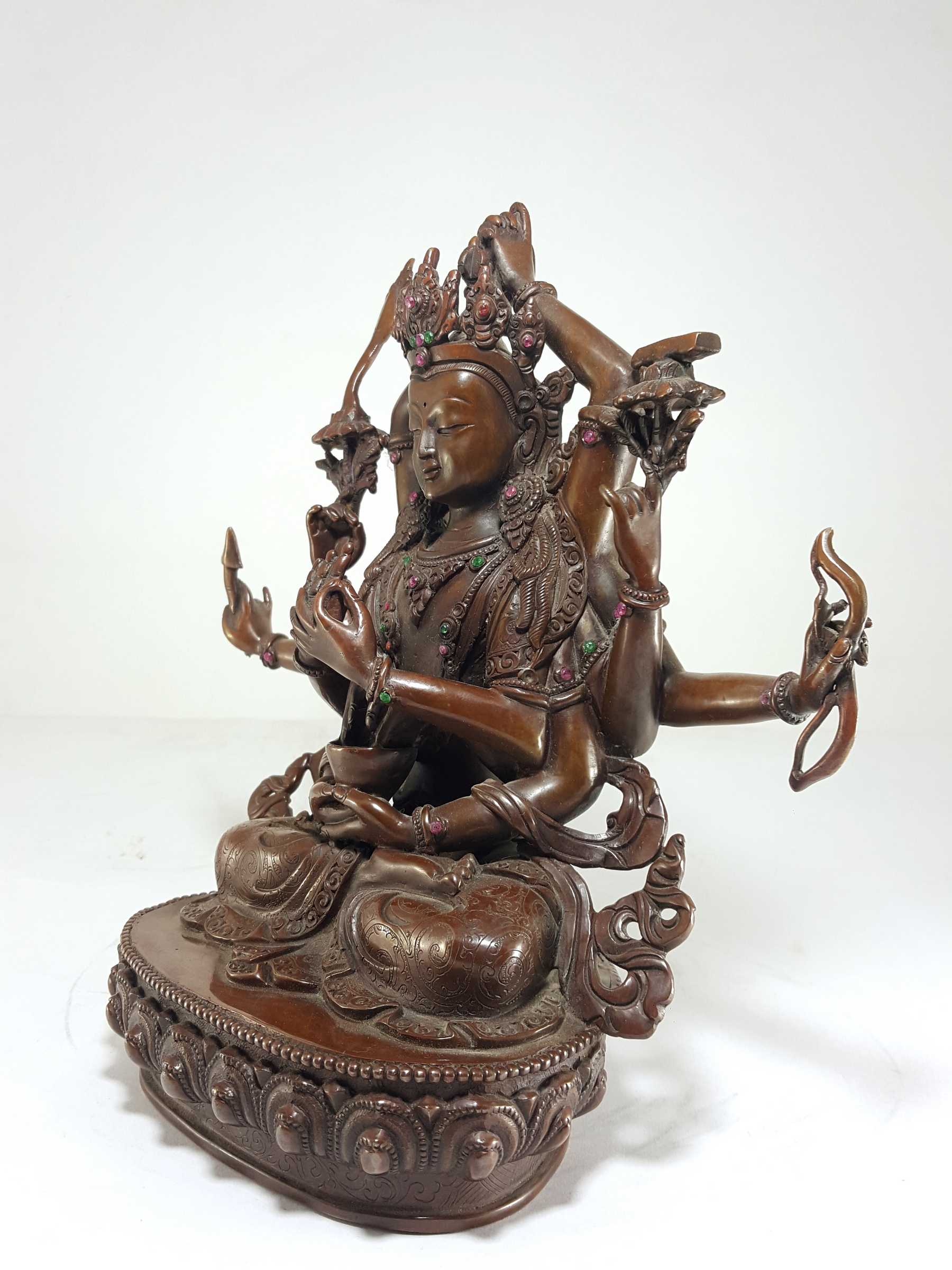 of Namasangiti Chocolate Oxidation" title="Statue
of Namasangiti Chocolate Oxidation" title="Statue  of Manjushri - Full Fire Gold Plated" title=""siddhi Raj Original" Statue
of Manjushri - Full Fire Gold Plated" title=""siddhi Raj Original" Statue 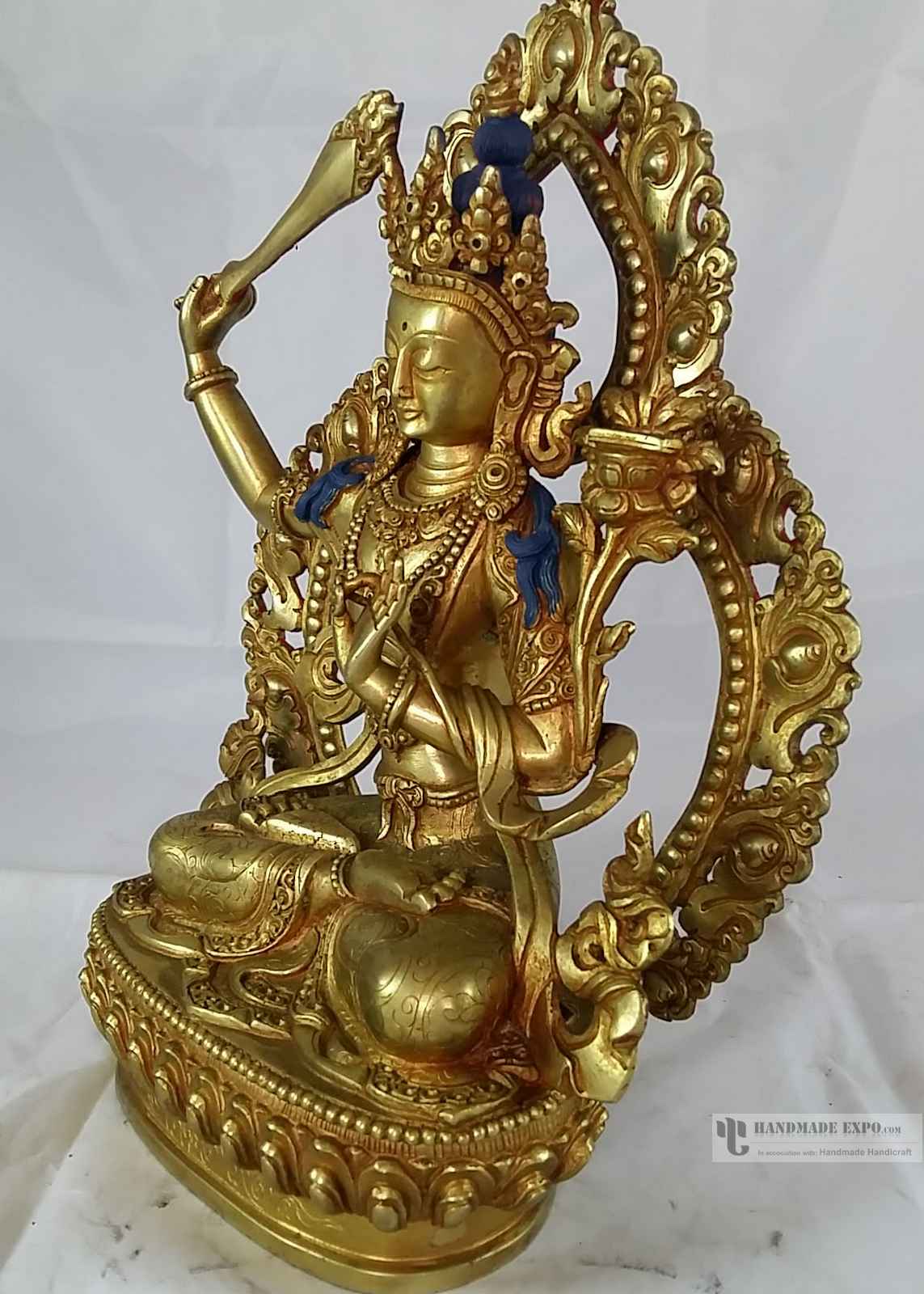 of Manjushri - Full Fire Gold Plated" title=""siddhi Raj Original" Statue
of Manjushri - Full Fire Gold Plated" title=""siddhi Raj Original" Statue  Manjushri, Buddhist Handmade Statue
Manjushri, Buddhist Handmade Statue 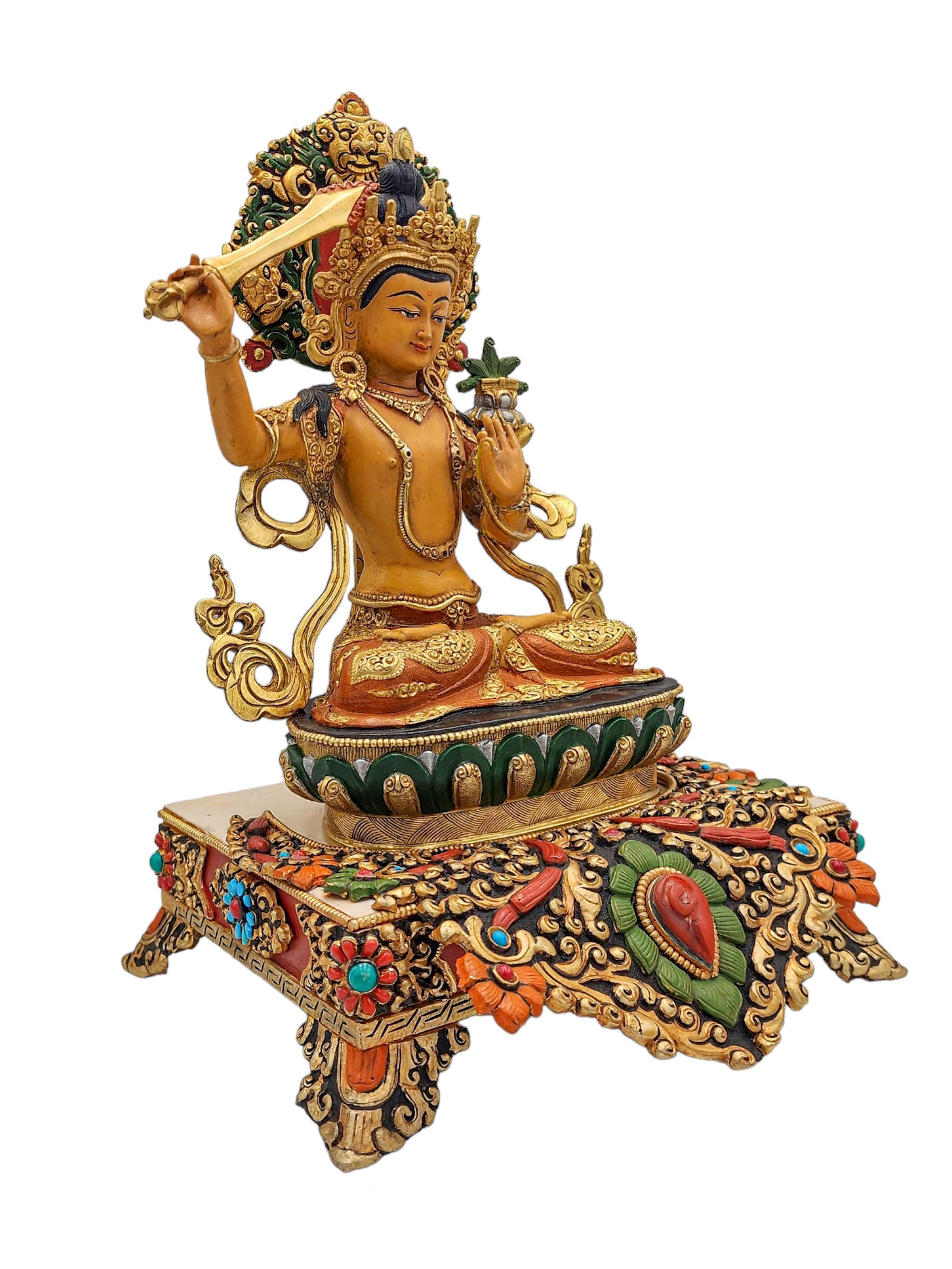 Manjushri, Buddhist Handmade Statue
Manjushri, Buddhist Handmade Statue  Manjushri, Buddhist Handmade Statue,
Manjushri, Buddhist Handmade Statue, 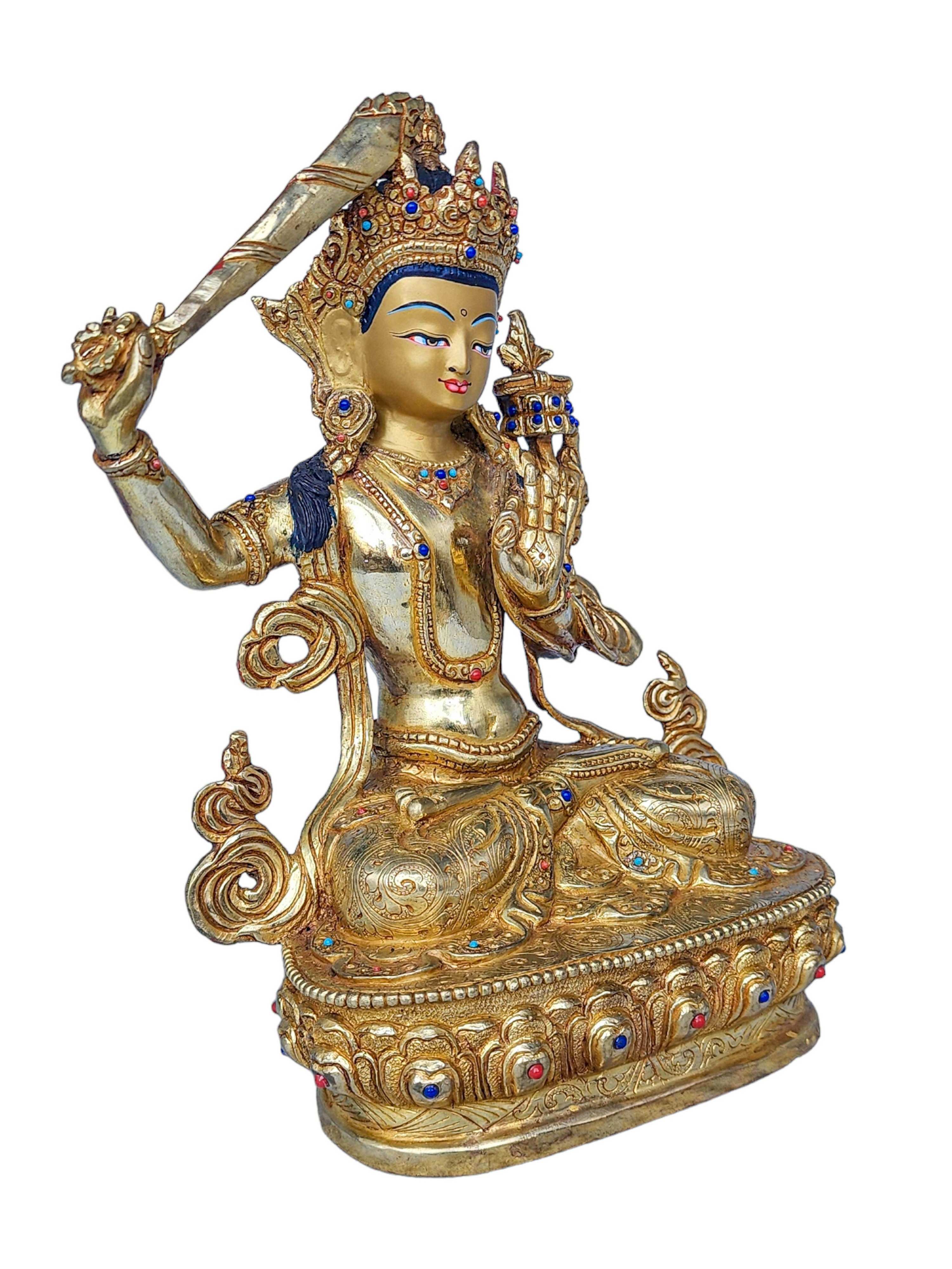 Manjushri, Buddhist Handmade Statue,
Manjushri, Buddhist Handmade Statue,  Manjushree, Buddhist Handmade Statue,
Manjushree, Buddhist Handmade Statue, 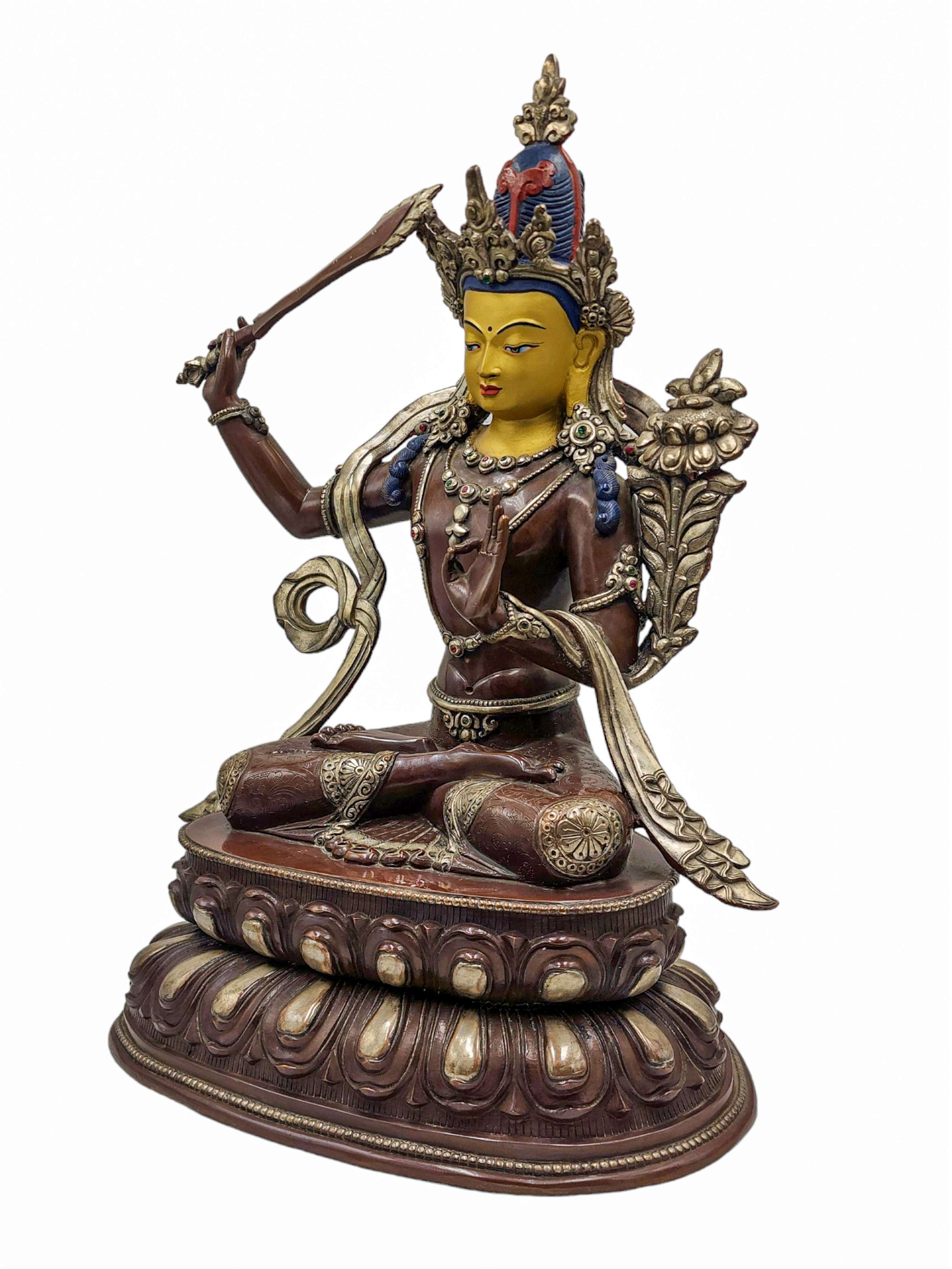 Manjushree, Buddhist Handmade Statue,
Manjushree, Buddhist Handmade Statue,  of Manjushri
of Manjushri 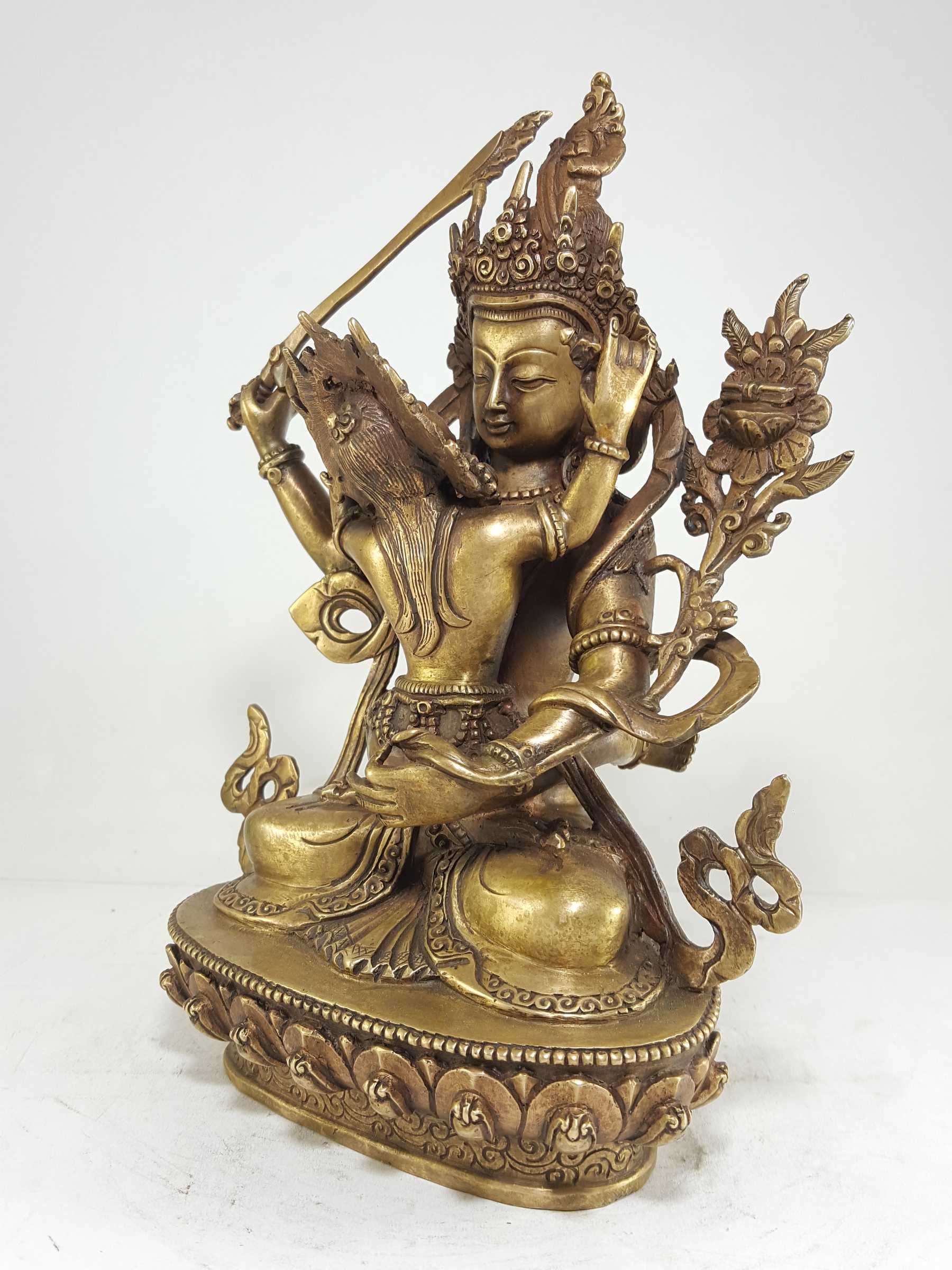 of Manjushri
of Manjushri 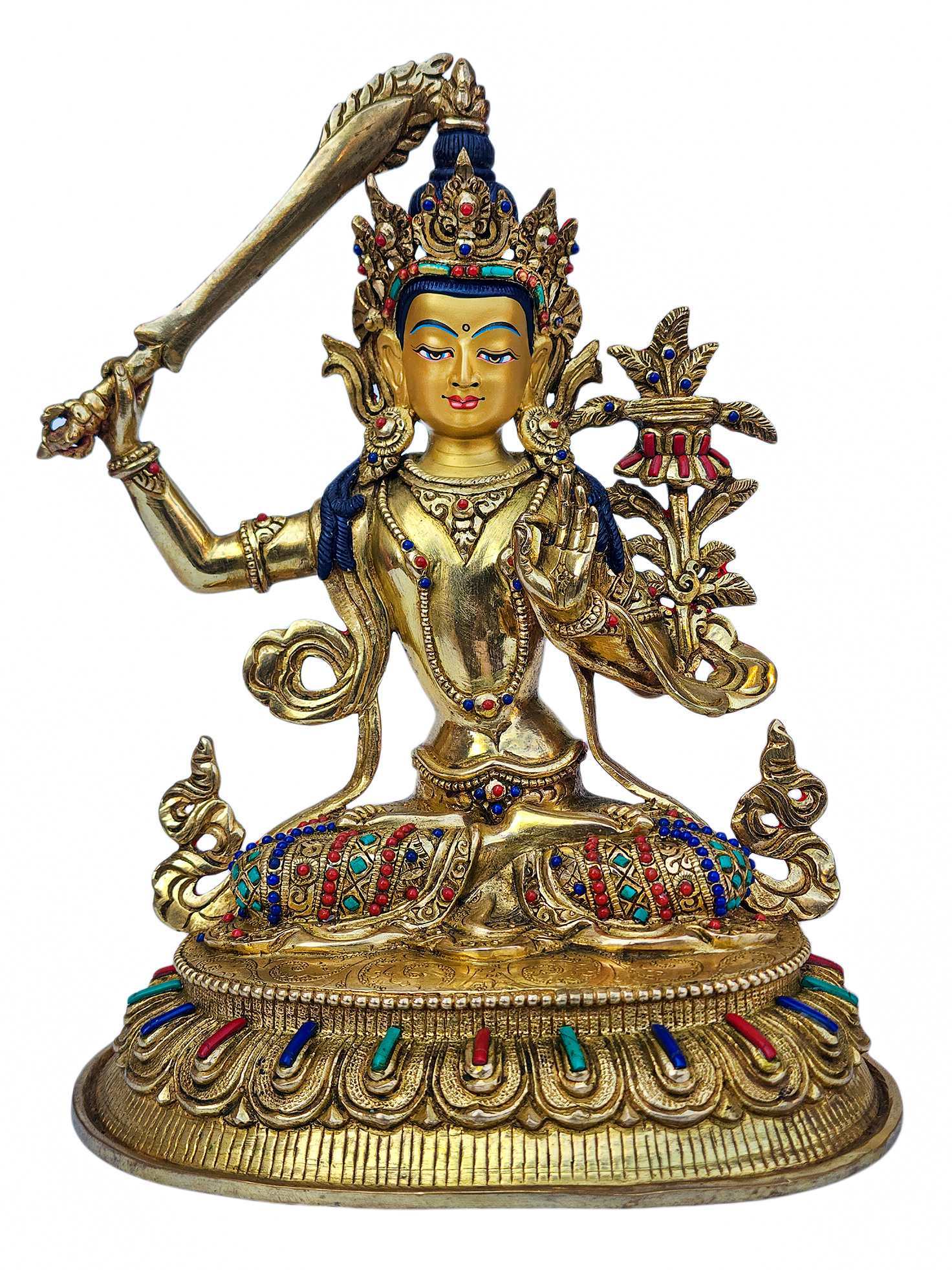 Manjushri, Buddhist Handmade Statue,
Manjushri, Buddhist Handmade Statue, 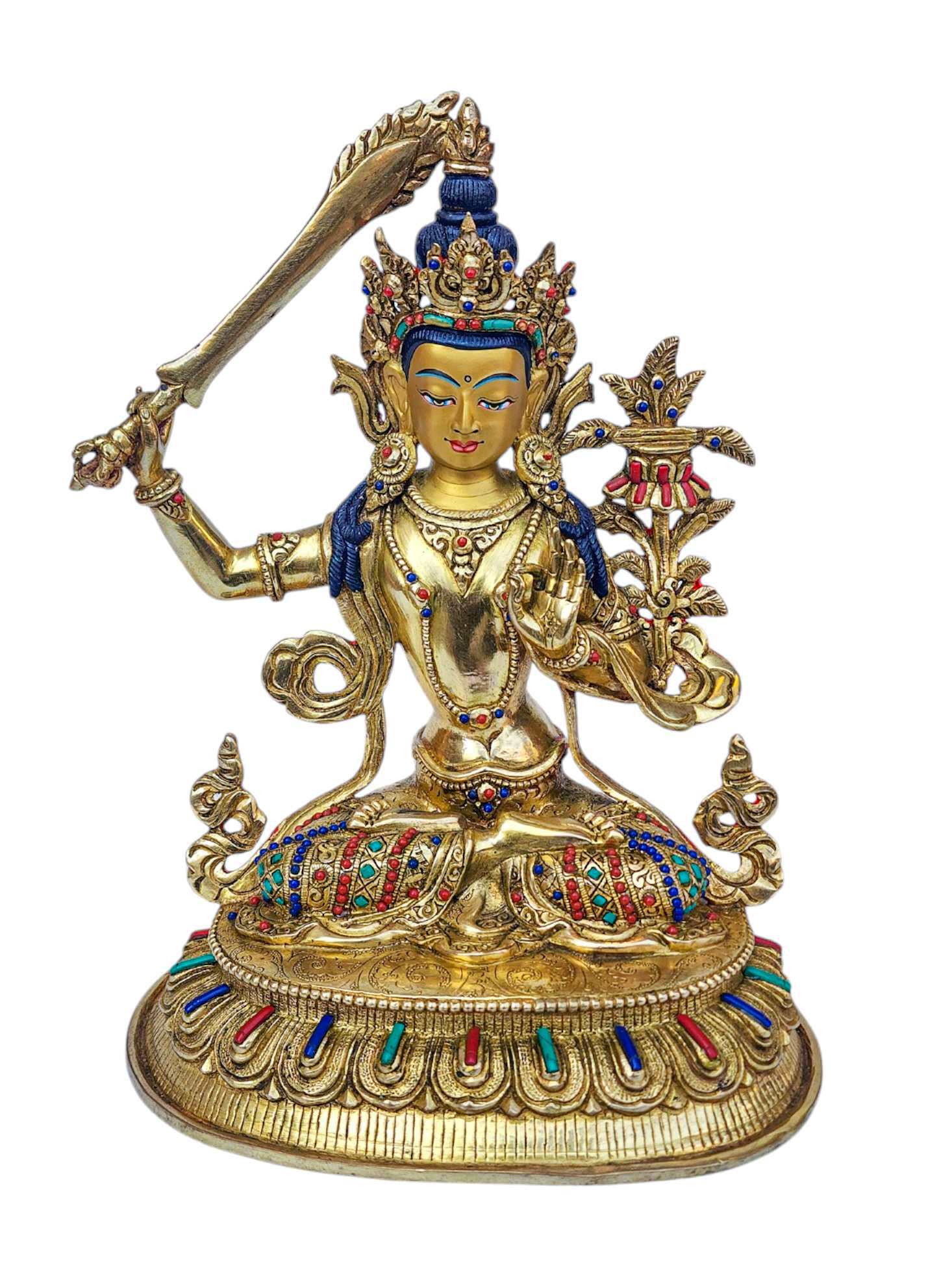 Manjushri
Manjushri